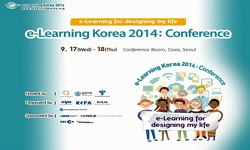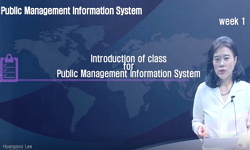This study examines the role of perceived feedback and motivations on the use for contribution in Knowledge Management Systems (KMS). An individual expects responses from others when he or she posts the knowledge or questions of soliciting knowledge i...
http://chineseinput.net/에서 pinyin(병음)방식으로 중국어를 변환할 수 있습니다.
변환된 중국어를 복사하여 사용하시면 됩니다.
- 中文 을 입력하시려면 zhongwen을 입력하시고 space를누르시면됩니다.
- 北京 을 입력하시려면 beijing을 입력하시고 space를 누르시면 됩니다.
https://www.riss.kr/link?id=A60083306
- 저자
- 발행기관
- 학술지명
- 권호사항
-
발행연도
2012
-
작성언어
Korean
- 주제어
-
등재정보
KCI등재
-
자료형태
학술저널
- 발행기관 URL
-
수록면
73-88(16쪽)
-
KCI 피인용횟수
1
- DOI식별코드
- 제공처
- 소장기관
-
0
상세조회 -
0
다운로드
부가정보
다국어 초록 (Multilingual Abstract)
This study examines the role of perceived feedback and motivations on the use for contribution in Knowledge Management Systems (KMS). An individual expects responses from others when he or she posts the knowledge or questions of soliciting knowledge in KMS. If an individual posts a message and there are many responses, motivation to use KMS will develop. Prior research has considered feedback a potential factor that would affect an individual’s motivation, such as self-efficacy, but there is few prior works that have tested empirically on how feedback can influence an individual’s motivations as well as the use for contribution in KMS. Perceived feedback can be categorized into feedback on posted knowledge and feedback on knowledge request postings.
The results of the study show that motivations such as organizational reward, knowledge self-efficacy, and enjoyment of helping, except for social reward, are associated with the use for contribution. Our results also show that among perceived feedback, feedback on posted knowledge affects motivation and use for contribution while feedback on knowledge request postings directly influences the use for contribution.
목차 (Table of Contents)
- Abstract
- 1. 서론
- 2. 이론적 배경 및 연구가설
- 3. 연구방법
- 4. 실증 분석
- Abstract
- 1. 서론
- 2. 이론적 배경 및 연구가설
- 3. 연구방법
- 4. 실증 분석
- 5. 결론
- 참고문헌
- 〈부록〉 설문항목
참고문헌 (Reference)
1 김경규, "지식공유 의도와 지식관리시스템의 사용" 한국경영정보학회 15 (15): 65-90, 2005
2 유일, "지식경영시스템의 사용자 성과에 영향을 미치는 요인: 실행공동체 특성요인을 중심으로" 한국지식경영학회 7 (7): 31-47, 2006
3 김승운, "온라인 피드백 메커니즘으로서 상품평 게시판의 지각된 효과성과 신뢰, 만족, 이용의도간의 관계구조분석" 한국경영과학회 32 (32): 53-69, 2007
4 Davenport, T.H., "Working knowledge : How organizations manage what they know" Harvard Business School Press 1998
5 Wasko, M., "Why should I share? Examining social capital and knowldge contribution in electronic networks of practice" 29 (29): 35-57, 2005
6 Ertmer, P. A., "Using peer feedback to enhance the quality of student online postings : an exploratory study" 12 : 412-433, 2007
7 Venkatesh, V., "User acceptance of information technology : Toward a unified view" 27 (27): 425-478, 2003
8 Reynolds, D., "To what extent does performance-related feedback affect managers’ self- efficacy?" 25 : 54-68, 2006
9 Henseler, J., "The use of partial least squares path modeling in international marketing" 20 : 277-319, 2009
10 Chin, W. W., "The partial least squares approach to structural equation modeling, In Modern Methods for Business Research" Lawrence Erlbaum Associates 295-336, 1998
1 김경규, "지식공유 의도와 지식관리시스템의 사용" 한국경영정보학회 15 (15): 65-90, 2005
2 유일, "지식경영시스템의 사용자 성과에 영향을 미치는 요인: 실행공동체 특성요인을 중심으로" 한국지식경영학회 7 (7): 31-47, 2006
3 김승운, "온라인 피드백 메커니즘으로서 상품평 게시판의 지각된 효과성과 신뢰, 만족, 이용의도간의 관계구조분석" 한국경영과학회 32 (32): 53-69, 2007
4 Davenport, T.H., "Working knowledge : How organizations manage what they know" Harvard Business School Press 1998
5 Wasko, M., "Why should I share? Examining social capital and knowldge contribution in electronic networks of practice" 29 (29): 35-57, 2005
6 Ertmer, P. A., "Using peer feedback to enhance the quality of student online postings : an exploratory study" 12 : 412-433, 2007
7 Venkatesh, V., "User acceptance of information technology : Toward a unified view" 27 (27): 425-478, 2003
8 Reynolds, D., "To what extent does performance-related feedback affect managers’ self- efficacy?" 25 : 54-68, 2006
9 Henseler, J., "The use of partial least squares path modeling in international marketing" 20 : 277-319, 2009
10 Chin, W. W., "The partial least squares approach to structural equation modeling, In Modern Methods for Business Research" Lawrence Erlbaum Associates 295-336, 1998
11 Kim, J.S., "The nature of the task as a moderator of the relationship between extrinsic feedback and employee responses" 22 (22): 157-162, 1979
12 Constant, D., "The kindness of strangers : The usefulness of electronic weak ties for technical advice" 7 (7): 119-135, 1996
13 Deci, E.L., "The empirical exploration of intrinsic motivational processes" 13 : 39-80, 1980
14 Kalman, M. E., "The effects of organizational commitment and expected outcomes on the motivation to share discretionary information in a collaborative database : Communication dilemmas and other serious games" University of Southern California 1999
15 Bock, G.W., "The effect of social context on the success of knowledge repository systems" 55 (55): 536-551, 2008
16 Cho, H., "Testing an integrative theoretical model of knowledge- sharing behavior in the context of Wikipedia" 61 (61): 1198-1212, 2010
17 Oldham, G. R., "Stimulating and supporting creativity in organizations, In Managing Knowledge for Sustained Competitive Advantage" Jossey-Bass 2003
18 Ridings, C. M., "Some antecedents and effects of trust in virtual communities" 11 : 271-295, 2002
19 Bandura, A., "Social foundations of thought and action : a social cognitive theory" Prentice- Hall 1986
20 Kollock, P., "Social dilemmas : the anatomy of cooperation" 22 : 183-205, 1998
21 Compeau, D.R., "Social cognitive theory and individual reactions to computing technology : a longitudinal study" 23 (23): 145-158, 1999
22 Ringle, C.M., "SmartPLS 2.0"
23 Bandura, A., "Self-efficacy mechanism in human agency" 37 : 122-147, 1982
24 Alavi, M., "Review : knowledge management and knowledge management systems : conceptual foundations and research issues" 25 (25): 107-136, 2001
25 Baron, R. A., "Negative effects of destructive criticism : impact on conflict, self-efficacy, and task performance" 73 : 199-207, 1988
26 Hair, J. F., "Multivariate data analysis, 6th ed." Pearson International 2006
27 Osterloh, M., "Motivation, knowledge transfer, and organizational forms" 11 (11): 538-550, 2000
28 Argote, L., "Managing knowledge in organizations : an integrative framework and review of emerging themes" 49 (49): 571-582, 2003
29 Cabrera, A., "Knowledge- sharing dilemmas" 23 (23): 687-710, 2002
30 Hsu, M. H., "Knowledge sharing behavior in virtual communities : The relationship between trust, self- efficacy, and outcome expectations" 65 : 153-169, 2007
31 Ryan, R.M., "Intrinsic and extrinsic motivations : classic definitions and new directions" 25 (25): 54-67, 2000
32 Hsu, M.H., "Internet self-efficacy and electronic service acceptance" 38 (38): 369-381, 2004
33 Cress, U., "Improving quality and quantity of contributions : Two models for promoting knowledge exchange with shared databases" 49 : 423-440, 2007
34 O’Dell, C., "If we only knew what we know : Identification and transfer of internal best practices" 40 : 154-174, 1998
35 Lai, J. Y., "How reward, computer self-efficacy, and perceived power security affect knowledge management systems success : an empirical investigation in high-tech companies" 60 (60): 332-347, 2009
36 Cabrera, E.F., "Fostering knowledge sharing through people management practices" 16 (16): 720-735, 2005
37 Ashford, S.J., "Feedback as an individual resource : Personal strategies of creating information" 32 : 370-398, 1983
38 Annett, J., "Feedback and human behavior : The effects of knowledge of results, incentives, and reinforcement on training and performance" Penguin Books 1969
39 Blau, P, "Exchange and power in social life" Wiley 1964
40 Alder, G. S., "Examining the relationship between feedback and performance in a monitored environment : A clarification and extension of feedback intervention theory" 17 : 157-174, 2007
41 Foss, N. J., "Encouraging knowledge sharing among employees : how job design matters" 48 (48): 871-893, 2009
42 Lin, H. F., "Effects of extrinsic and intrinsic motivation on employee knowledge sharing intentions" 33 (33): 135-149, 2007
43 Connolly, T., "Discretionary Databases : Theory, Data, and Implications, In Organizations and Communication Technology" Sage 219-233, 1990
44 Cabrera, A., "Determinants of individual engagement in knowledge sharing" 17 (17): 245-264, 2006
45 Kankanhalli A., "Contributing knowledge to electronic knowledge repositories : An empirical investigation" 29 (29): 113-143, 2005
46 Ilgen, D. R., "Consequences of individual feedback on behavior in organizations" 64 : 349-371, 1979
47 Compeau, D.R., "Computer self-efficacy : Development of a measure and initial test" 19 (19): 189-211, 1995
48 Bock, G.W., "Breaking the myths of rewards : an exploratory study of attitudes about knowledge sharing" 15 (15): 14-21, 2002
49 Bock, G. W., "Behavioral intention formation in knowledge sharing: Examining the roles of extrinsic motivators, social-psychological forces, and organizational climate" SOC INFORM MANAGE-MIS RES CENT 29 (29): 87-111, 200503
50 Rai, A., "Assessing the validity of IS success models : An empirical test and theoretical analysis" 13 (13): 50-69, 2002
51 Vande Walle, D., "An integrated model of feedback-seeking behavior : disposition, context, and cognition" 85 (85): 996-1003, 2000
52 Deci, E. L., "A meta-analytic review of experiments examining the effects of extrinsic rewards on intrinsic motivation" 125 : 627-668, 1999
동일학술지(권/호) 다른 논문
-
다중회귀분석을 이용한 DEA-AR 모형 개발 및 국내 지방공사의 효율성 평가
- 한국경영과학회
- 심광식(Gwang Sic Sim)
- 2012
- KCI등재
-
다수의 경쟁이 존재하는 환경에서 적시 스케줄링에 관한 연구
- 한국경영과학회
- 정대영(Dae-Young Chung)
- 2012
- KCI등재
-
복수의 공급업체가 경쟁하는 공급사슬의 수입공유 거래모형
- 한국경영과학회
- 박해철(Haechurl Park)
- 2012
- KCI등재
-
여러 가지 뉴스벤더모델의 기대값 사이의 관계에 대한 견고한 추측
- 한국경영과학회
- 원유경(Youkyung Won)
- 2012
- KCI등재
분석정보
인용정보 인용지수 설명보기
학술지 이력
| 연월일 | 이력구분 | 이력상세 | 등재구분 |
|---|---|---|---|
| 2026 | 평가예정 | 재인증평가 신청대상 (재인증) | |
| 2020-01-01 | 평가 | 등재학술지 유지 (재인증) |  |
| 2017-01-01 | 평가 | 등재학술지 유지 (계속평가) |  |
| 2013-01-01 | 평가 | 등재학술지 유지 (등재유지) |  |
| 2010-01-01 | 평가 | 등재학술지 유지 (등재유지) |  |
| 2008-01-01 | 평가 | 등재학술지 유지 (등재유지) |  |
| 2006-01-01 | 평가 | 등재학술지 유지 (등재유지) |  |
| 2004-01-01 | 평가 | 등재학술지 유지 (등재유지) |  |
| 2001-01-01 | 평가 | 등재학술지 선정 (등재후보2차) |  |
| 1998-07-01 | 평가 | 등재후보학술지 선정 (신규평가) |  |
학술지 인용정보
| 기준연도 | WOS-KCI 통합IF(2년) | KCIF(2년) | KCIF(3년) |
|---|---|---|---|
| 2016 | 0.66 | 0.66 | 0.69 |
| KCIF(4년) | KCIF(5년) | 중심성지수(3년) | 즉시성지수 |
| 0.69 | 0.66 | 1.157 | 0.2 |




 ScienceON
ScienceON DBpia
DBpia







